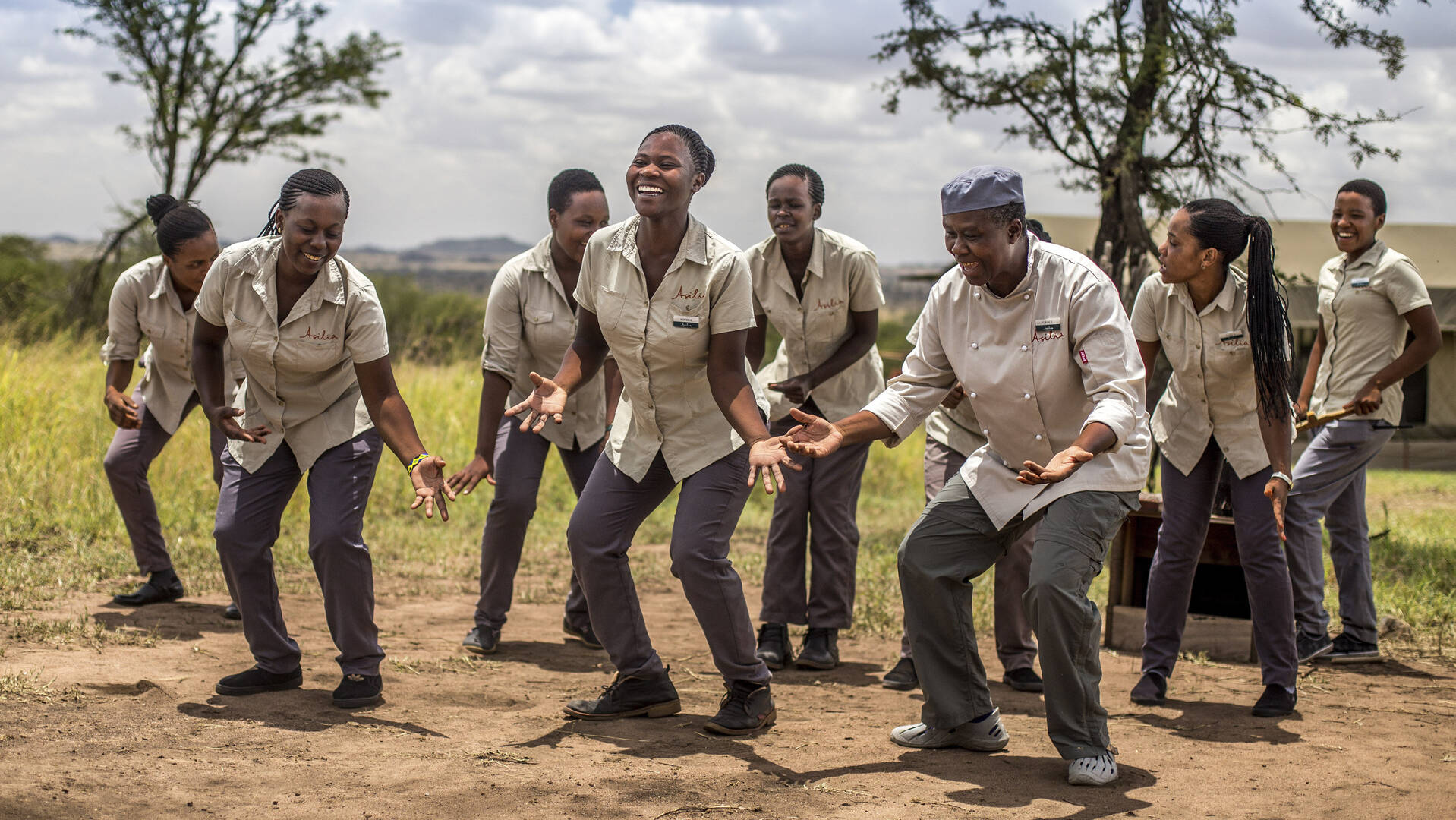Have you ever wondered how much to tip in Tanzania? In many parts of the world, tipping can be a nuanced subject, but in Tanzania, it’s considerably straightforward. However, backing that simplicity is an evolving cultural foundation influenced by tourism and local customs.
Tanzania’s tipping culture is significantly shaped by its service-oriented sectors, particularly tourism. Historically, tipping wasn’t a common practice among locals. However, with the influx of tourists, tipping has become more prevalent, providing supplementary income for many service workers. A good rule of thumb is to tip 10% in restaurants, though the amount may vary depending on the service quality.

Exploring the Tipping Culture in Tanzania
In Tanzania, tipping is both customary and appreciated, especially in tourist areas. Though it is not mandatory, many service workers rely on tips to supplement their income. According to the article, tipping is most common in restaurants, safari tours, and hotel services. Visitors usually leave about 10% of the total bill as a tip. This rewarding gesture makes a significant difference for the staff.
Tipping etiquette in Tanzania can vary slightly based on the service provided. For guides and drivers on a Tanzania safari, tipping between $10 to $20 per day is the norm. Those who climb Kilimanjaro often tip their guides and porters, as they play crucial roles in the expedition. Here’s the post highlighting the importance of tipping generously in such scenarios. Remember, the tips reflect your appreciation for their hard work.
When dining in Tanzania, a service charge may sometimes be included in the bill. However, if the service was exceptional, it’s a good idea to leave an extra tip. Hotel staff, such as housekeepers, often receive smaller tips, generally around $1 to $2 per night. Despite the amount, tips are always well-received and contribute to the workers’ livelihoods.
To make tipping easier, it’s helpful to carry small denominations of the local currency, Tanzanian Shillings (TZS). Alternatively, U.S. dollars are widely accepted in tourist areas. By being prepared, you can ensure you adequately tip and show respect for the service you received. Ultimately, tipping in Tanzania is about recognizing the effort and dedication of those who work hard to make your experience memorable.
Essential Information about Tipping in the Tanzanian Context
Understanding how to tip in Tanzania can make your visit smoother and more respectful. It is important to know that tipping is not mandatory but highly valued and expected in many service sectors. According to the article, tips often go a long way toward helping service workers support their families. Hence, even small tips are appreciated. Moreover, tipping in U.S. dollars is acceptable, especially in tourist-heavy locations.
When you embark on a Tanzania safari, it’s crucial to tip your guide and driver properly. Generally, the recommended tip is around $10 to $20 per person per day. Similarly, for those who engage in Kilimanjaro Climbing, tips for guides and porters are typical. A straightforward rule is to tip between $20 to $30 per day for your guide, while porters receive a bit less. Carrying out these practices reflects your gratitude for their hard work.
Hotels and restaurants in Tanzania often include a service charge in the bill, especially in upscale establishments. However, if you find the service exceptional, adding an extra 10% as a tip is a wonderful gesture. Typical tips for hotel staff, including porters and housekeepers, range from $1 to $2 per day. This small act shows your appreciation and helps them significantly.
To ensure you can tip appropriately, always have small denominations of Tanzanian Shillings or U.S. dollars. This makes the tipping process straightforward and avoids the hassle of breaking large bills. Plus, it enables you to quickly show your gratitude. By following these simple guidelines, your gestures will be warmly received and make a positive impact on those offering you services.
Factors Influencing Tip Amounts in Tanzania
Various factors affect how much you might tip while visiting Tanzania. The quality of service is a major determinant; exceptional service deserves a generous tip. Additionally, the type of service you receive influences the tip amount. For example, tipping guidelines vary for a Tanzania safari guide versus hotel staff. Location also matters, as more tourist-heavy areas tend to have higher tipping expectations.
The duration of the service can also impact tipping amounts. Long-term services, such as multi-day Kilimanjaro Climbing, generally require higher tips. Tourists often tip their guides and porters based on the length of the trek. According to the article, an extended service period usually results in a substantial tip. This ensures that service providers feel adequately compensated for their prolonged efforts.
Another influencing factor is the local custom and standard practice. In many Tanzanian restaurants, a service charge might be included in the bill. However, it remains customary to add a small tip if the service was particularly good. Here is a table that highlights standard tips for various services:
| Service Type | Typical Tip Amount |
|---|---|
| Restaurant Service | 10% of the bill |
| Hotel Housekeeping | $1 to $2 per day |
| Safari Guide | $10 to $20 per day |
| Kilimanjaro Climbing Guide | $20 to $30 per day |
The economic situation also plays a role in how tips are perceived and valued. For many services workers, tips make a significant difference in their earnings. Thus, being mindful of this context can help you determine an appropriate tip. Not only do you contribute to their income, but you also show respect for their efforts, significantly enriching their overall experience.
Impact of Tipping on Service Workers and Tourism
Tipping substantially impacts the livelihood of service workers in Tanzania. Many rely on these additional earnings, as regular wages are often low. When tourists tip generously, it not only helps families but also boosts employee morale. This positive reinforcement encourages better service. Consequently, visitors are likely to receive a more enjoyable experience.
Moreover, tipping culture influences the tourism sector in Tanzania. Better-tipped workers are more motivated and likely to offer excellent services which attract repeat tourists. For example, guides on a Tanzania safari or during a Kilimanjaro Climbing expedition often go the extra mile when adequately tipped. Enhanced service quality drives positive reviews and recommendations. These, in turn, help foster a thriving tourism industry.
The ripple effect of tipping extends beyond individual workers. Local communities also benefit as service employees often spend their earnings in nearby businesses. This circulation of income helps sustain small enterprises and boosts the local economy. Thus, the benefits of tipping reach far beyond just the recipients. Here is a table showing the positive outcomes linked to generous tipping:
| Aspect | Impact |
|---|---|
| Worker Morale | Increased motivation and job satisfaction |
| Service Quality | Enhanced customer experience |
| Local Economy | Sustains small businesses and local vendors |
| Tourism | More repeat visitors and positive reviews |
In addition to financial benefits, tipping also promotes cultural exchange. Tourists who engage in tipping often interact more with local service providers. This interaction can lead to a richer understanding of Tanzanian culture and way of life. These exchanges create memories, making travel more meaningful for tourists. Through such interactions, both parties enjoy a mutually enriching experience.
Key Takeaways
- Tipping in Tanzania is appreciated but not mandatory.
- Restaurants usually expect around a 10% tip if no service charge is included.
- Hotel staff typically receive $1-2 per night as a tip.
- Safari guides often get tipped $10-20 per day.
- Tipping helps support local service workers and shows gratitude.

